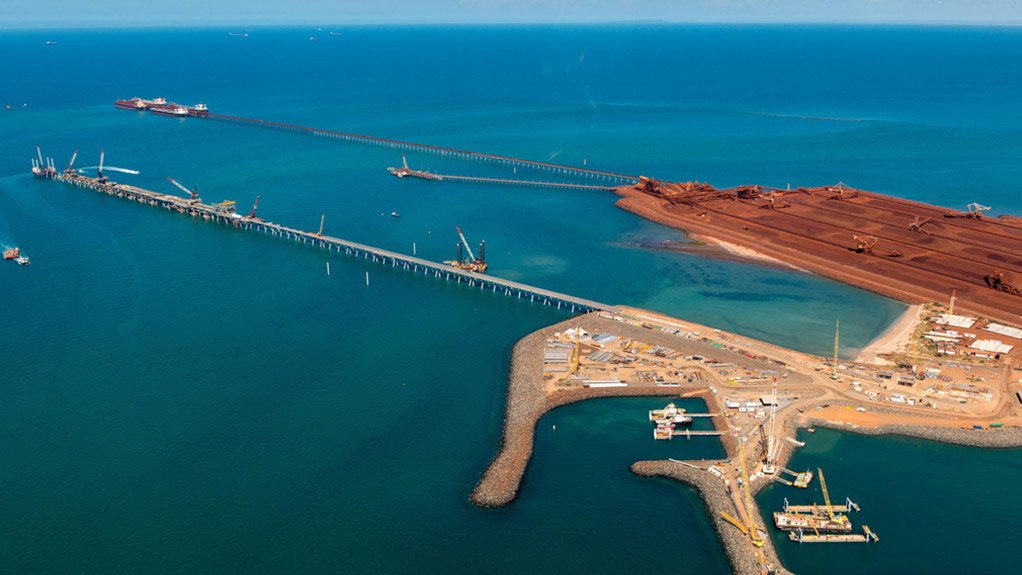PERTH (miningweekly.com) – Diversified giant Rio Tinto has seen production decline across its asset portfolio, as the Western Australia and Queensland operations were impacted by wet weather conditions during the three months to March.
Iron-ore production from the Pilbara operations declined by 10% compared with the previous quarter, reaching 77.2-million tonnes during the first quarter ended March, while iron-ore shipments were down 13% in the same period to 76.7-million tonnes.
Rio explained on Thursday that ship loading at the Pilbara operations was impacted by cyclone activity during the period, and sections of the rail network were affected by significant rainfall.
Despite these disruptions, the group said its shipment guidance for 2017 remained unchanged at 330-million to 340-million tonnes.
Hard coking coal production fell by 28% quarter-on-quarter to 1.5-million tonnes, while semi-soft and thermal coal production was down 1% on the previous quarter, to 5.1-million tonnes.
Hard coking coal production was affected by the timing of the longwall changeover at the Kestrel mine, as well as processing rates at Hail Creek. Furthermore, the damage to rail lines caused by Cyclone Debbie, in Queensland, was also expected to impact the timing and potentially the volume of shipments from Hail Creek over the course of the year.
Rio kept its guidance for coking coal at 7.8-million tonnes to 8.4-million tonnes and its semi-soft coking coal guidance at between 3.3-million tonnes and 3.9-million tonnes. The company expects to produce between 17-million tonnes and 18-million tons of thermal coal this year.
Mined copper production for the quarter was down 37%, to 84 200 t, owing to a 43-day labour strike at the Escondida mine, in Chile, and lower ore grades at the Oyu Tolgoi mine, in Mongolia.
Rio noted that the Escondida strike combined with the curtailment of production at the Indonesia-based Grasberg operation had led to a revised 2017 guidance of between 500 000 t and 550 000 t. The company previously expected to produce 525 000 t to 665 000 t.
Operations at Escondida were expected to ramp up to normal production levels by July.
Aluminium production for the three months to March decreased by 3%, while bauxite production was down 7%, to 889 000 t and 11.3-million tonnes respectively.
“Despite challenging weather conditions at our Western Australian and Queensland operations, we delivered solid production in the first quarter of 2017,” Rio CEO Jean-Sebastian Jacques said on Thursday.
“Our strategy is unchanged. Our number-one priority is safety. We maintain our disciplined approach to capital management and maximising cash flow, with a focus on managing costs and enhancing productivity across the business.
“These actions support the delivery of strong cash returns to shareholders in the short, medium and long term,” Jacques said.
Edited by: Mariaan Webb
Creamer Media Senior Deputy Editor Online
EMAIL THIS ARTICLE SAVE THIS ARTICLE
ARTICLE ENQUIRY
To subscribe email subscriptions@creamermedia.co.za or click here
To advertise email advertising@creamermedia.co.za or click here













